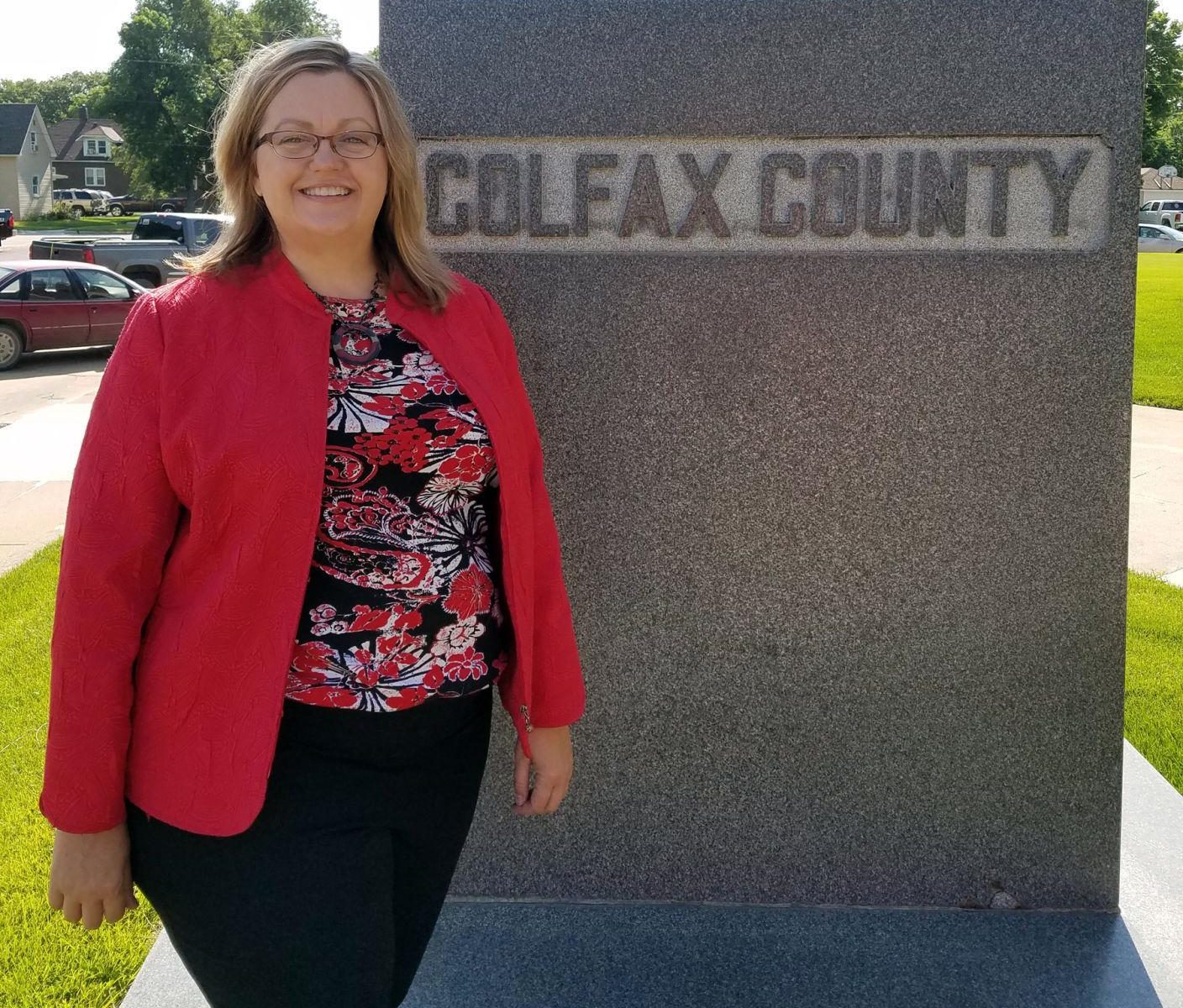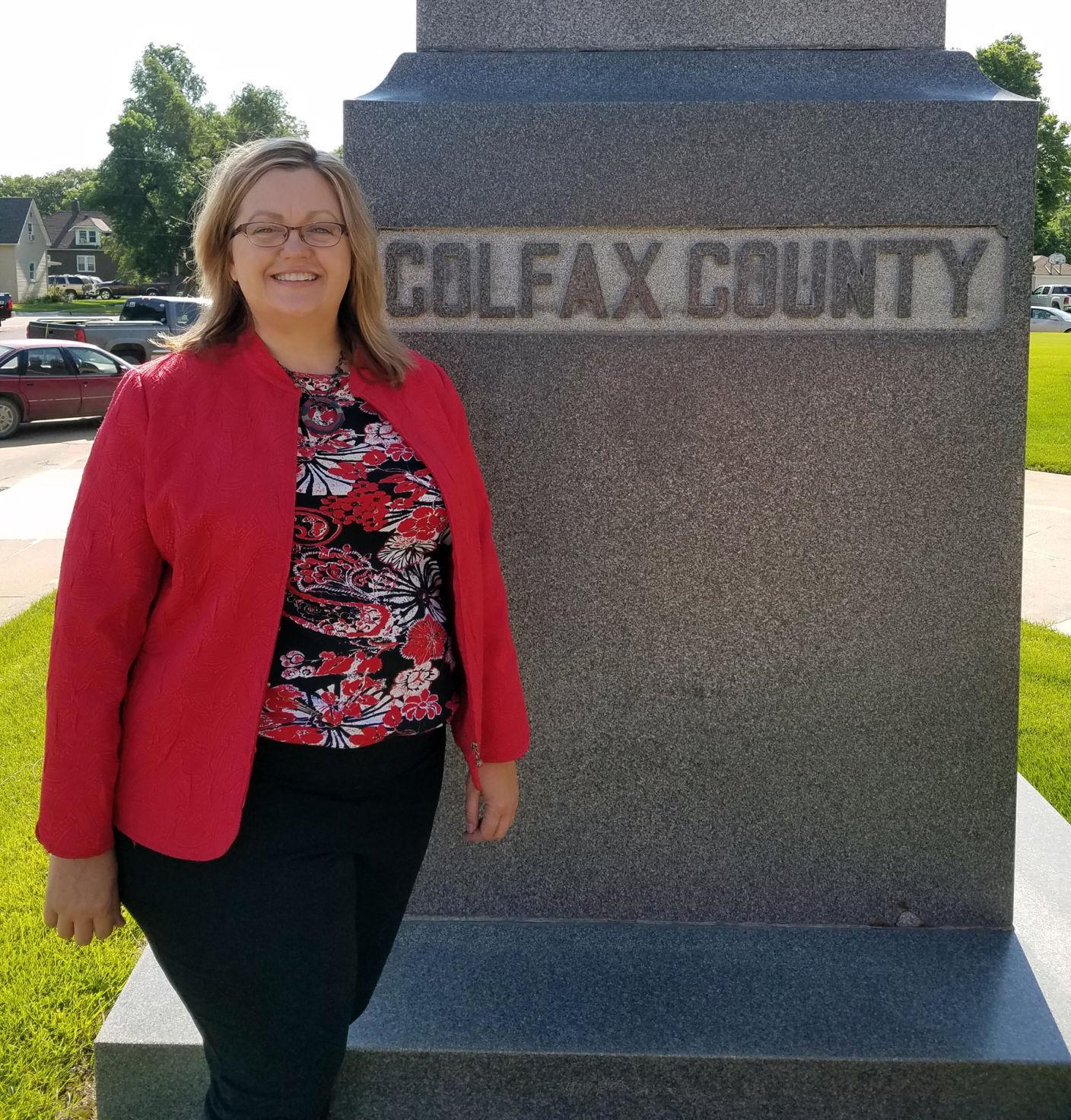Drug court offers aid: Program aims to help defendants truly rebound

Colfax County Attorney Denise Kracl poses for a photo in 2018 outside of the Colfax County Courthouse. Kracl recently discussed the 5th Judicial District Problem-Solving Court being implemented locally.
Select Colfax County defendants with substance abuse issues who find themselves in trouble with the law may have a shot at redemption that doesn’t involve prison time.
The 5th Judicial District Problem-Solving Court that already exists in York, Merrick and Hamilton counties is being expanded into Colfax, Butler and Saunders. Problem-solving courts are an alternate route through the criminal justice system for non-violent drug-related offenders.
“I definitely think it can be helpful,” Colfax County Attorney and Public Information Officer Denise Kracl said. “It wraps around community resources, court resource treatment and has an entire group of professionals who are working to help a person get clean and sober for 18-consecutive months.”
Judge Tina Marroquin is the presiding judge of the court in all three counties added to the program, which began serving participants on Jan. 7, 2020. Marroquin was a key player in getting the program rolling in Colfax, Butler and Saunders counties, Kracl noted.
Nebraska Adult Drug Courts utilize a specialized team process that functions within the existing court structure. Adult drug courts are designed to achieve a reduction in recidivism and substance use among individuals with substance use disorders.
According to the State Administrative Office of the Courts and Probation, the court’s goal is to protect public safety and increase the participant’s likelihood of successful rehabilitation by utilizing validated risk and need assessments, early and individualized behavioral health treatment, frequent and random chemical testing, incentives, sanctions, and other rehabilitative and ancillary services.
Problem-solving courts in Nebraska operate under a team approach in which a judge, prosecutor, defense counsel, coordinator, community supervision officer, law enforcement and treatment provider(s) work together to design an individualized program for each participant. Compliance with treatment and court orders is verified by frequent alcohol/drug testing, close community supervision, and interaction with a judge in non-adversarial court review hearings.
“It increases the chances of someone staying clean and sober and becoming productive, law-abiding members of society,” Kracl said, who added that on average 70-80 percent of people in Nebraska who graduate from Drug Court do not return to the criminal justice system. “There are going to be bumps along the road – people will relapse - but this can help prevent people from getting locked up in prison. We want to get them clean and sober, and we want to keep them to stay clean and sober and be productive members of society.”
Drugs and alcohol are only part of the program. Besides working to kick addictions through treatments, participants have to write apology letters, pay restitution, do community service, takes classes to change their way of thinking and be working. All of it is about helping those struggling to be able to live their best lives. That’s why those who successfully complete the program will have the charges they initially pleaded to dismissed.
“That’s the incentive for them,” Kracl said, noting the reward for those who maintain sobriety for the 18 months while being watched closely essentially daily. “They’ve worked for 18 months and we’re not helping them sending them back out into the world as felons. We want them to be contributing members of society – this really is an amazing program. This is a foundation to restart the rest of their lives.”


 Pathways Drug Rehabilitation Luxury Addiction Treatment & Detox Center
Pathways Drug Rehabilitation Luxury Addiction Treatment & Detox Center


